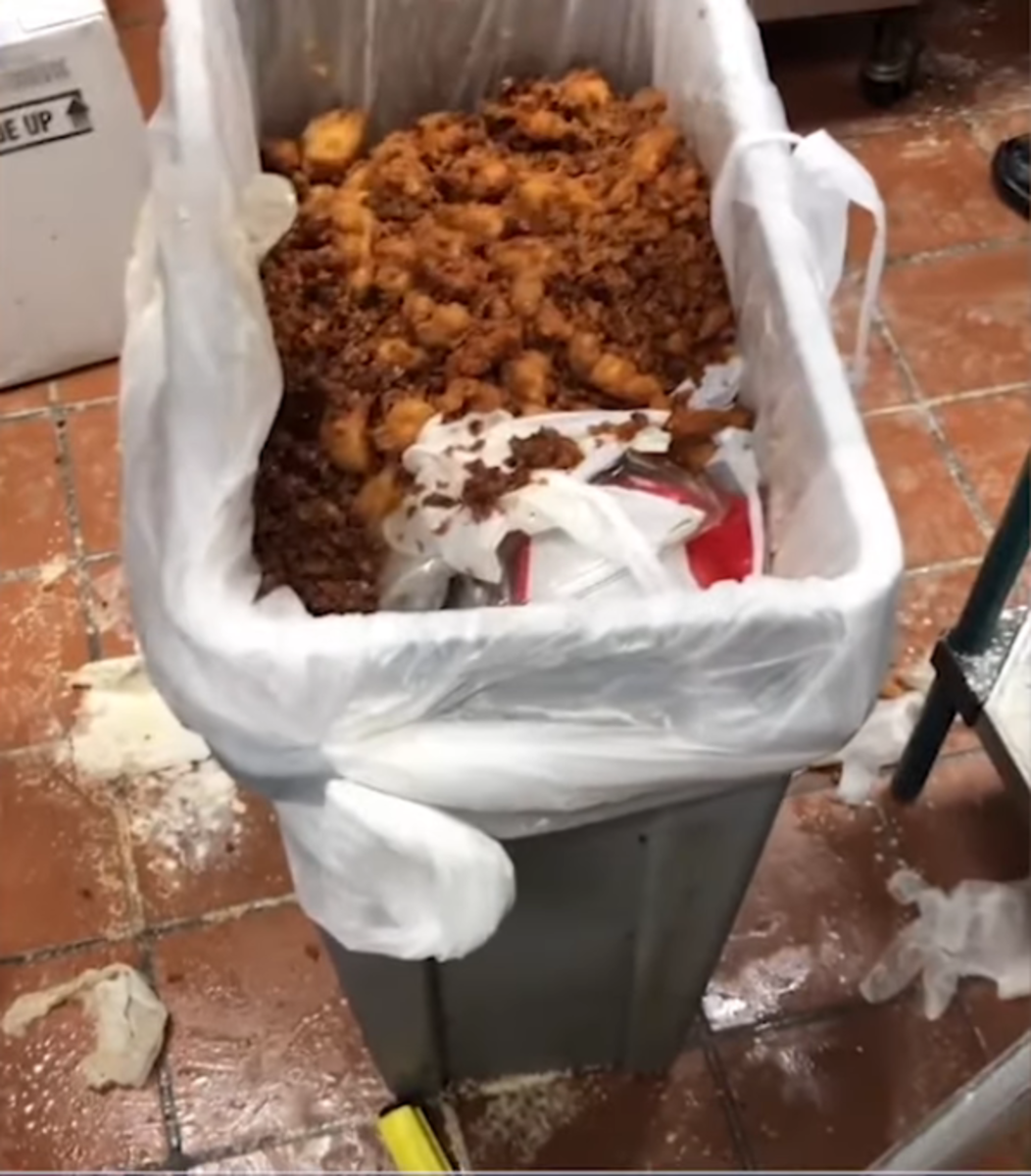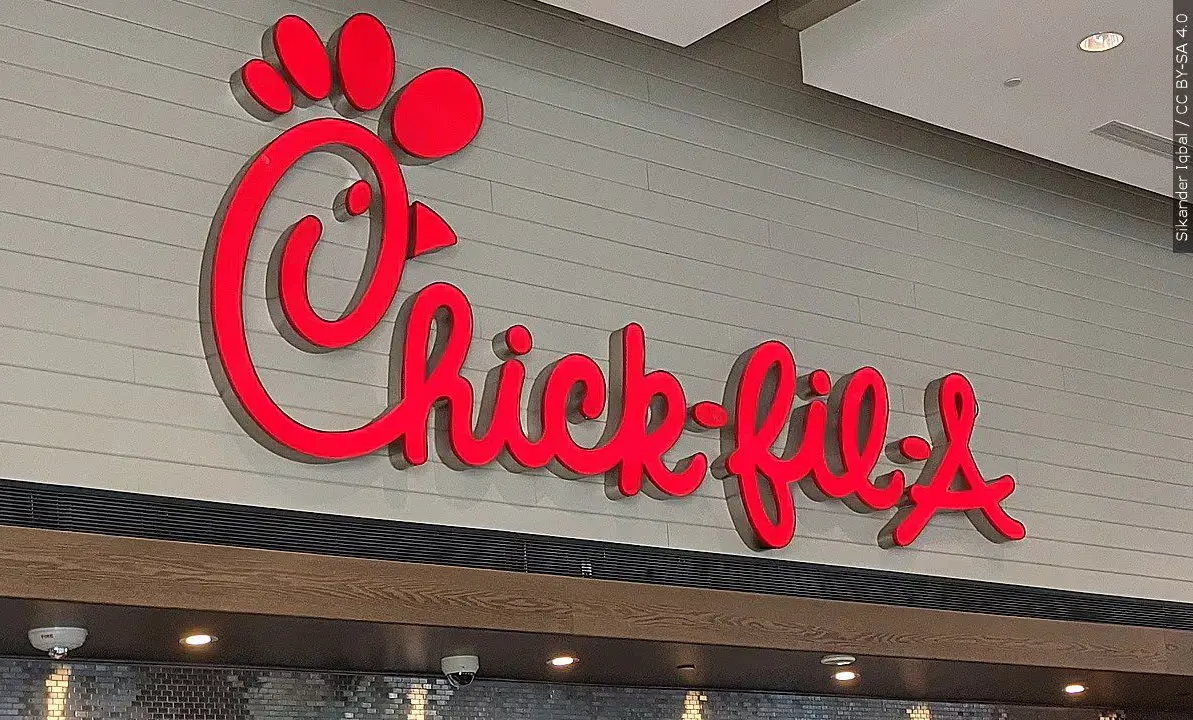A viral video has sparked outrage among social media users, drawing attention to food waste practices at one of America’s most beloved fast-food chains, Chick-fil-A. The video, originally posted on TikTok in June 2021, reignited debates about food waste and corporate responsibility.
The Video That Started It All
The TikTok video, shared by a user under the handle @jlucvss, shows what appears to be a Chick-fil-A employee disposing of a tray filled with uneaten chicken nuggets. The caption reads, “What they do every night with the chicken nuggets at Chick-fil-A,” hinting at routine food disposal practices.
With over 7 million views, the video quickly went viral, sparking a mix of anger, disappointment, and debate. Many viewers were troubled by the sight of perfectly good food being discarded, especially when food insecurity remains a pressing issue for millions across the United States.
Public Reaction: Outrage and Debate
The video’s comment section was flooded with opinions, with many criticizing the apparent waste of food.
One user wrote, “The amount of food we throw away and the number of starving people out there—it just doesn’t sit right with me. It’s sad.”
Others suggested that Chick-fil-A should donate leftover food to those in need, but this sparked a secondary debate. Some pointed out the potential health risks associated with donating perishable items like chicken, especially if they’ve been left out for hours. One commenter noted, “Chicken that sits out too long cannot be given out to the homeless. It’s not a doughnut.”
This dichotomy of opinions underscores the complexity of the issue: balancing food safety regulations with the desire to minimize waste and help those in need.

Photo Credit: VESA Channel/Youtube
Chick-fil-A’s Response
Chick-fil-A, a company celebrated for its customer service and community-oriented image, has faced scrutiny before for various reasons. This incident, however, casts a spotlight on its waste management practices.
The company pointed to its existing food donation program, Chick-fil-A Shared Table, which was launched in 2012. Through this initiative, participating franchise locations package and donate surplus food to local charities, including soup kitchens and non-profits.
Despite this program, critics argue that the viral video suggests gaps in implementation or consistency across locations. Chick-fil-A has not provided a detailed response to the video, leaving questions about its broader waste management practices unanswered.
The Bigger Picture: Food Waste in the Fast-Food Industry
The controversy surrounding Chick-fil-A is part of a larger issue: food waste in the fast-food industry. According to the U.S. Department of Agriculture, an estimated 30-40% of the food supply in America is wasted each year, amounting to approximately 133 billion pounds of food.
Fast-food chains, which operate on strict standards for food freshness and quality, often discard unsold items to maintain these standards. However, this practice contributes significantly to food waste, raising ethical and environmental concerns.

Photo Credit: VESA Channel/Youtube
Ethical Considerations and Social Responsibility
The backlash against Chick-fil-A highlights the growing demand for businesses to adopt more transparent and responsible practices. Consumers increasingly expect companies to align with social values, including sustainability and community support.
Many users called for Chick-fil-A and similar businesses to explore alternatives, such as:
- Enhanced Donation Programs: Expanding partnerships with local charities to ensure leftover food reaches those in need.
- Food Redistribution Technology: Leveraging technology to connect surplus food with organizations that can distribute it quickly and safely.
- Employee Training: Educating staff on minimizing waste and following food safety guidelines for potential donations.
Balancing Safety and Sustainability
While the desire to reduce food waste is strong, businesses must navigate strict health and safety regulations. Perishable items like chicken pose unique challenges due to the risk of foodborne illnesses. To address these concerns, companies can invest in better storage, packaging, and transportation solutions to ensure food remains safe for redistribution.
The Path Forward
For Chick-fil-A, this incident serves as a wake-up call. While the company has made strides with programs like Chick-fil-A Shared Table, the viral video suggests there is room for improvement. Addressing these concerns head-on could not only rebuild public trust but also strengthen the company’s reputation as a socially responsible organization.
Fast-food chains operate in a highly competitive market where brand image plays a crucial role. By demonstrating a commitment to reducing waste and supporting communities, Chick-fil-A could turn this controversy into an opportunity to lead by example.
Conclusion
The viral TikTok video exposing Chick-fil-A’s food disposal practices has reignited discussions about waste, hunger, and corporate responsibility. As consumers continue to demand more from the businesses they support, companies like Chick-fil-A must evolve to meet these expectations.
By embracing innovative solutions and fostering transparency, Chick-fil-A has the potential to transform its approach to food waste, ensuring that its legacy extends beyond great service and chicken sandwiches to include meaningful contributions to sustainability and social good.

